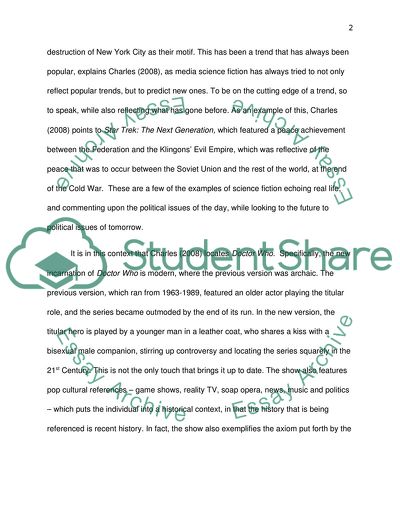Cite this document
(The Politics of Doctor Who Essay Example | Topics and Well Written Essays - 2500 words, n.d.)
The Politics of Doctor Who Essay Example | Topics and Well Written Essays - 2500 words. https://studentshare.org/visual-arts-film-studies/1792226-discuss-the-politics-of-doctor-who
The Politics of Doctor Who Essay Example | Topics and Well Written Essays - 2500 words. https://studentshare.org/visual-arts-film-studies/1792226-discuss-the-politics-of-doctor-who
(The Politics of Doctor Who Essay Example | Topics and Well Written Essays - 2500 Words)
The Politics of Doctor Who Essay Example | Topics and Well Written Essays - 2500 Words. https://studentshare.org/visual-arts-film-studies/1792226-discuss-the-politics-of-doctor-who.
The Politics of Doctor Who Essay Example | Topics and Well Written Essays - 2500 Words. https://studentshare.org/visual-arts-film-studies/1792226-discuss-the-politics-of-doctor-who.
“The Politics of Doctor Who Essay Example | Topics and Well Written Essays - 2500 Words”. https://studentshare.org/visual-arts-film-studies/1792226-discuss-the-politics-of-doctor-who.


